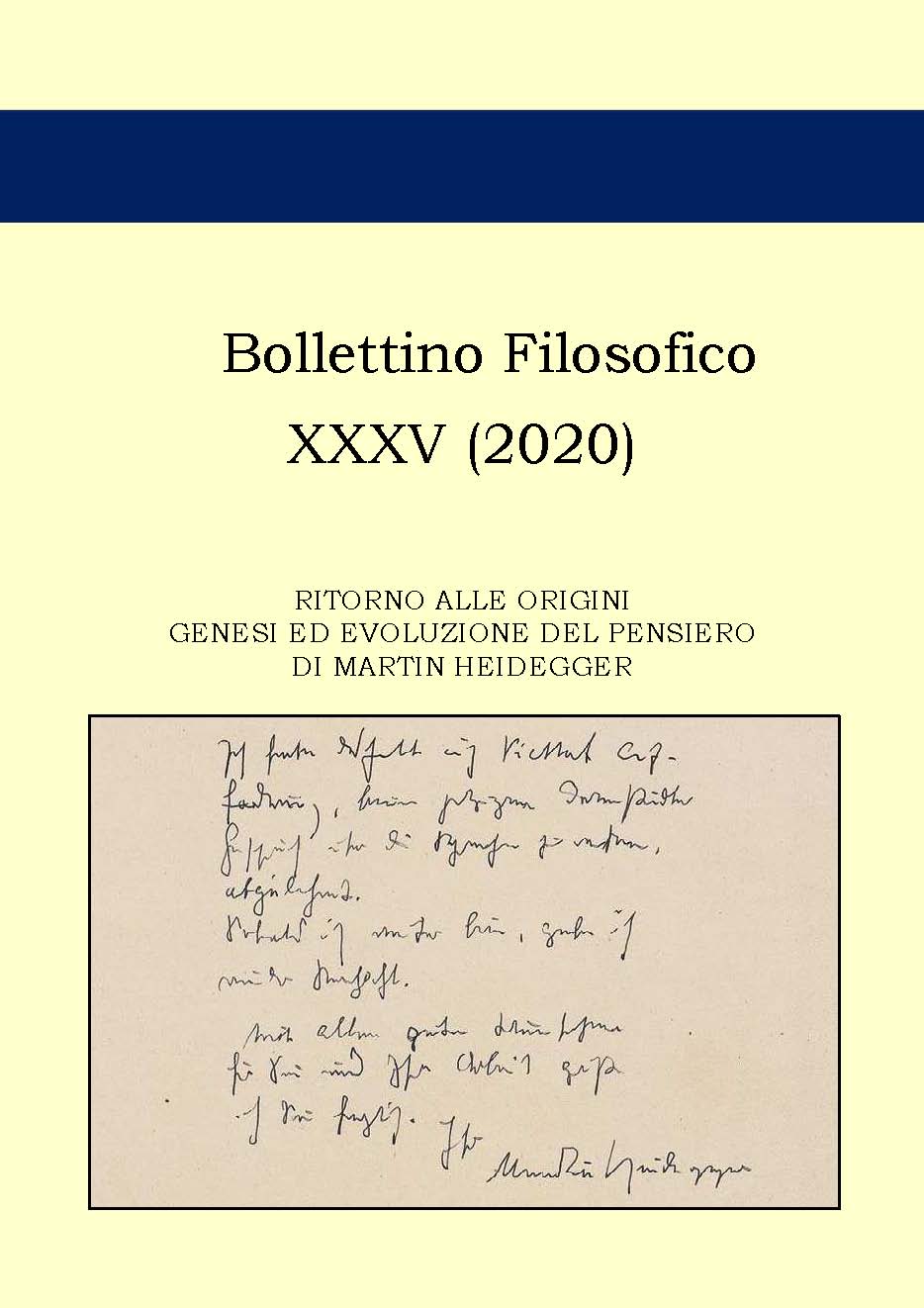The Origin Remains Future. The Question of Affectivity in the Heideggerian Course on the Fundamental Concepts of Aristotelian Philosophy (1924)
DOI:
https://doi.org/10.6093/1593-7178/7436Abstract
This paper reconstructs the origin and choice of the term Befindlichkeit, analyzing the Heideggerian course Fundamental Concepts of Aristotelian Philosophy (1924). In the first step, the importance of the question is motivated within the Heidegger path. Later, philological aspects are addressed, showing how the term Befindlichkeit is coined as a translation of three different Greek terms (diathesis, pathos, hedone) and then acquires autonomous thickness, to indicate the emotional situation of Dasein. Finally, we focus on what could be called “the pathe of authenticity”: eudaimonia (i.e. the telos) and phobos (necessary for an authentic decision): emotional tonalities that seem one of the most interesting deliveries of the Heideggerian scenario.
Keywords: Aristotle, Befindlichkeit, Emotional Tonalities, Heidegger, Pathos
Downloads
Downloads
Published
How to Cite
Issue
Section
License
The author retains the copyright of his work whilst granting anyone the possibility “to reproduce, distribute, publicly communicate, publicly exhibit, display, perform and recite the work”, provided that the author and the title of the journal are cited correctly. When submitting the text for publication the author is furthermore required to declare that the contents and the structure of the work are original and that it does not by any means compromise the rights of third parties nor the obligations connected to the safeguard of the moral and economic rights of other authors or other right holders, both for texts, images, photographs, tables, as well as for other parts which compose the contribution. The author furthermore declares that he/she is conscious of the sanctions prescribed by the penal code and by the Italian Criminal and Special Laws for false documents and the use false documents, and that therefore Bollettino Filosofico is not liable to responsibilities of any nature, civil, administrative or penal, and that the author agrees to indemnify and hold Bollettino Filosofico harmless from all requests and claims by third parties.

